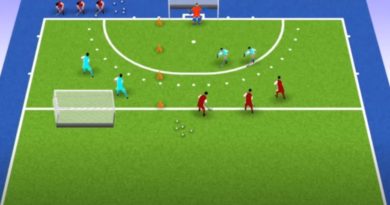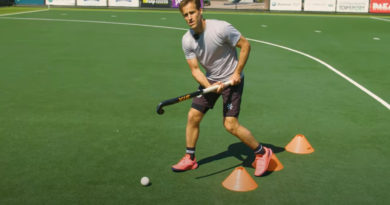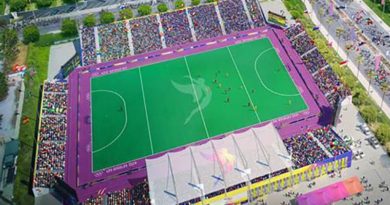How important is to promote social unity and bonding skills in young hockey teams?
Hockey is our game and the sport we love. We love the sense of belonging to a team, we love the idea of bonding and forming a group of people that work hard in order to achieve a common goal, and we love to spend time with our teammates. In many teams these sensations are created from within the group, perhaps because we spent a lot of time together as a group and perhaps because each individual really loves what they do.

Promoting a sense of togetherness and unity in hockey is something crucial. The most successful teams are those ones where individuals spend quality time together on and off the field, as a unit. Even though this brotherhood or sisterhood bond is something that many times come out naturally, sometimes it has to be developed and encouraged.
When players are young they start to develop their personality, and the things that they like or the things that they don’t like. As an example, youth hockey players start choosing their hockey stick, based on colors, brand that they love and even quality. A great way to help them to choose, is to read the reviews of Best Field Hockey Sticks, where you will find the most complete guides for each hockey brand.
Generally speaking, players start playing hockey from an early stage of their life, especially when the social skills of a person are still in development. Let’s say you coach an under-7 years old team. As a coach, you will have to focus on developing not only the hockey technical skills but also those traits around the social aspect of life.
Teaching and promoting team bonding and individual behavior can be encouraged from an early age. Values like respect, commitment, solidarity, can be key to breeding a healthy youth team environment that everyone enjoys.

One of the best ways of achieving these team bonding goals, is through team building activities outside the field.
1) Celebrating a birthday: When you are a kid is an event that triggers future memories and moments that last forever. Organizing a hockey-theme birthday party can be fun for everyone, parents that don’t play hockey included. This could be a great way to improve the team unity and also to make the rest of the family, a big part of the activity.
2) Pre-game team lunch / dinner: One of the best sensations for a hockey player is the excitement in the hours before a hockey match. The weekend has come and the players have trained hard during the week, and now they are just hours away from that big hockey game. Is there any better way to calm down the anxiety while building up the energy and concentration, than having a meal together with the teammates?
3) Watching a premiership hockey match together: One of the nicest images that you can see around any hockey pitch in the world, is when the club’s youth players jump into the field to hit the ball around during the halftime of a premiership match. Adding this activity to the list of things that a young team can do together, is truly rewarding. These kids will grow up watching their club heroes and they will start picking on advanced technical skills that they can replicate on their training sessions.

4) Team Tours: Almost every hockey player in the world had the chance to tour somewhere with his or her team to play hockey, right? The memories that are built in these trips last a lifetime. Organizing a team tour not only involve the coaches and players, generally the family becomes part of this event, as they can help put together events in order to raise funds.
5) Fun extracurricular activities: Finally, how about doing other team activities outside hockey? Take your players to do something different, such as kayaking (with all the safety measurements required), take them camping, take them cycling, take them to a movie! Do something else that will help them spend time together. Include some parents to help around, but surely these types of activities are fun and always a good time.
In conclusion, we can say that hockey is a beautiful sport inside and outside the pitch. Teams that spend quality time become stronger, and the bond and love for the sport becomes natural to them. We hope you enjoyed this article and find our ideas useful, let’s make our teams grow strong!




